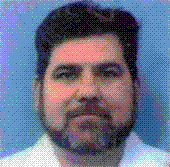I Humbly find those two words to be the most irritating of arguments: C'mon! It's a synonym for "No intelligent person could possibly disagree with me." Should we not register guns? C'mon! Should taxpayer money not go towards college educations for the disadvantaged? C'mon! Shouldn't all medical care be administered by the federal government? C'mon! Shouldn't tobacco be flat-out banned? C'mon! Shouldn't Constitutional rights be limited whereever there exists a potential for abuse? C'mon! You're a fool and a jerk if you disagree with the C'mon argument.
Supreme Court Justice Ruth Bader Ginsberg used essentially just this argument, recently. She referred to an argument from an Israeli Supreme Court Chief Justice, Aharon Barak, to wit, "Torture? Never." C'mon! Nope, no legal discussion necessary. No careful reasoning, no thought, just the raw emotion of that passionate appeal. Torture prisoners even under the most dire of circumstances? C'mon!
Ordinary people saying, "C'mon!" are signalling a closed mind. They clearly have a prejudice. They have decided, and YOU are the fool if you do not, upon hearing those two words, agree with them. Ordinary people do not have the extraordinary power of Supreme Court justices.
Justice Ginsberg, responding to a question about citing foreign law, said, essentially, "C'mon!" Yeah, of course the Supreme Court should hear citations of foreign law. Oh, she stated arguments that, early in this nation's history, foreign law was commonly cited. She appealed to the desire for status and popularity within the world community, saying Canada was cited more in foreign courts then we are! I try hard not to use profanity, but this kind of high-school argument has me biting my Humble tongue. The framers of the Constitution should have foreseen this idiocy, and put in a clause saying, "Whereas other nations upon this earth shall find it agreeable to jump off a cliff, the Supreme Court shall not do so."
Okay, not every issue facing the Supreme Court was considered by the Constitution. What remains is for the Supreme Courts to do what we pay them to do: decide the law. Are the actions of the other two branches of the federal government allowed by the Constitution? That's ALL.
C'mon!
skip to main |
skip to sidebar


My own Humble opinions about the infuriating, outrageous, and bizarre aspects of society. The irony of Samuel Clement is as relevant today as when he was lampooning society in the 19th century. I am no Samuel Clement, hence my Humility. Have a read.
Facebook Badge
Why is it...?
...That the leadership of this country has, for the most part, been comprised of those who are afraid of their own constituents, at least, those who are not submissive to the so-called "public servants"? We, the people, seem to mostly elect politicians who want to control us, while making sure their bodyguards have loaded automatic weapons. Tens of millions of Americans obey the law, so why do we allow politicians to disarm us, making us easy prey for that small percentage of criminals?
About Me

- VinceInAZ
- I'm married with two boys. My careers tend to be in the computer and Internet arenas, although I've driven a truck and walked armed patrols as a security guard. I am a former enlisted member of the Air Force, where I served my country by keeping computers running. I have no political ambition, nor experience. I reserve my participation to the field of commentary.



